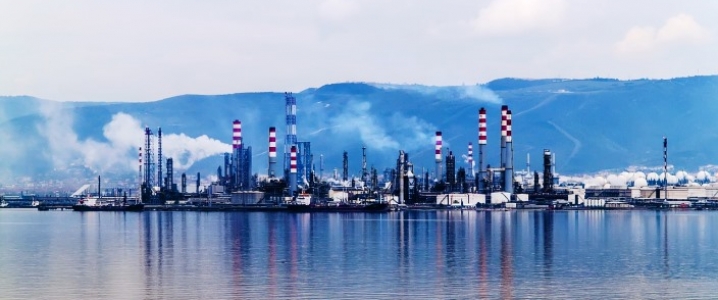For about a decade, Texas has considered the idea of erecting a coastal barrier to protect against the impacts of hurricanes. Texas A&M researchers concluded that a direct hit to Galveston from a massive hurricane could cause $31.8 billion worth of damage to homes and apartments from a storm surge. This estimate excludes the potential harm to commercial buildings and ports.
The study concluded that building a coastal barrier about 60 miles long from Galveston to the Bolivar Peninsula could reduce the potential damage by 80 percent to $6 billion. Texas subsequently requested $12 billion for the full coastal spine.
However, some enterprising soul recognized that this could also protect significant refining assets around the Houston Ship Channel, and a viral headline was born: Big Oil asks government to protect its Texas facilities from climate change
As one person asked me, “How dare these refiners ask for protection from a problem they caused?” I was asked if I could defend this “outrage”, and indeed I did. Here was the defense.
First, the vast majority of what is being protected isn’t the refineries. This area is a major population center, with numerous homes and businesses. Some of those businesses happen to be refineries, but there are also wetlands, miles of coastline, and two national wildlife refuges in the immediate vicinity. And people. Lots and lots of people.
Related: Major Airlines Expect Oil Prices To Rise
Second, refiners didn’t cause climate change. They played a role, as did everyone who helped find, extract, refine, and transport oil (as well as coal and natural gas). True, many people along the supply chain have profited as a result, but that includes the federal and state governments from oil production taxes, taxes on gasoline, property taxes, and income taxes on oil industry employees and oil company profits.
But the reason refining is a major business is because there is a huge demand for the product. Every person who ever consumed fossil fuels — and that pretty much covers all of us — is complicit in carbon dioxide emissions. We all contribute a share.
Some people like to rationalize that they only consume oil because oil companies suppressed alternatives, but that’s nonsense. Oil is the backbone of transportation in every developed country in the world, not because of a global oil lobbying effort, but because oil was relatively cheap, easy to transport, and easy to use.
So the notion that refiners caused climate change may enable a rage-inducing headline, but I think a fact-checker would label it “Mostly False.”
Related: Russia Looks To Boost Gas Sales In Tighter European Markets
Finally, let’s say that we don’t build this barrier. Who is going to suffer? Refiners? Yes, during a major storm they may go offline like they did during and after last year’s Hurricane Harvey. Remember what happened? Gasoline prices spiked, and there were local gasoline shortages. Does that sound like a better option?
Sure, it’s easy to get outraged over the idea that the oil industry caused climate change and is now asking for taxpayer-funded protection from its effects. But a decision to build the barrier should be made on the basis of a sober assessment of facts, and not on manufactured outrage designed to get clicks.
By Robert Rapier
More Top Reads From Oilprice.com:
- Goldman: Don’t Expect A Major Oil Price Spike From IMO Regulations
- The Start Of Saudi Arabia’s Power Play
- Is A New Crisis Brewing In The Saudi Royal Family?


















